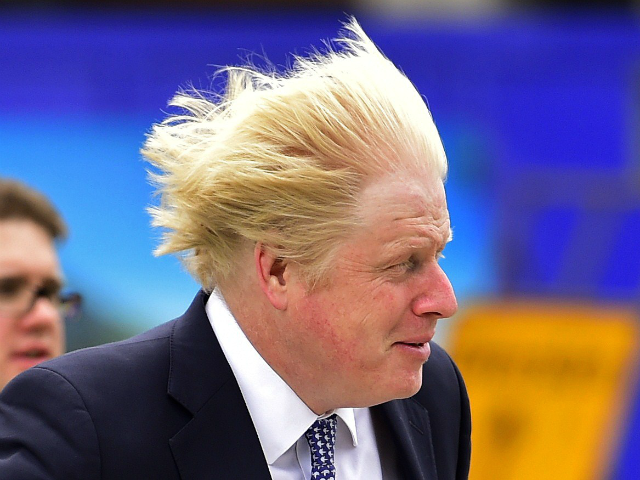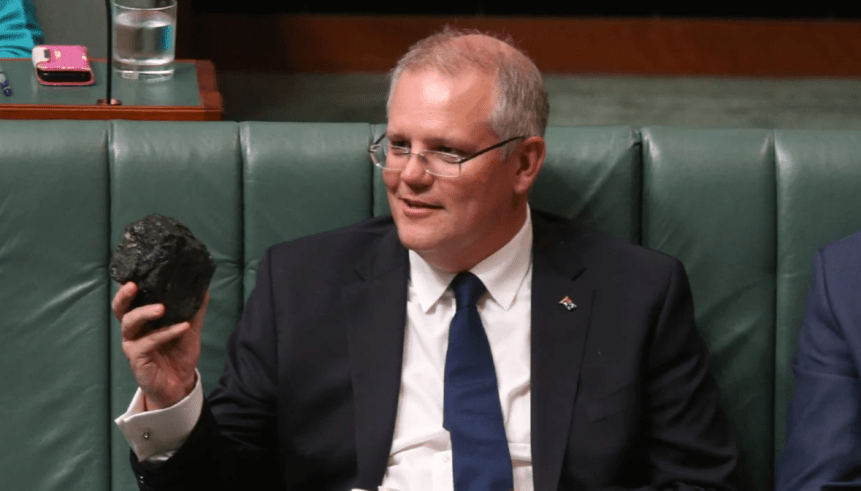Boris ‘Bonkers’ Johnson is running energy policies that were written by and for the Greens. Touting an all-wind powered future and an end to fossil fuels, his little island nation has already experienced mass blackouts courtesy of its obsession with wind power and is set for a whole lot more if Johnson’s plans get anywhere near fruition.
UK power prices have rocketed and energy poverty is the new normal for its poorest and most vulnerable.
So, it’s more than just a little rich for Boris to be lecturing Australia about energy policy.
Apparently overlooking the fact that Australia does not enjoy the benefits of the CO2-emissions-free nuclear power generation that he does, Boris proceeded to give our PM a blast over this country’s apparent “failure” to do enough on reducing CO2 emissions.
The Australian’s Gerard Henderson picks up the thread below.
Great friends, sure, but don’t lecture us on emissions targets
The Australian
Gerard Henderson
26 June 2021
Scott Morrison is in Cornwall, the place of birth of the man he terms his fifth great-grandfather, who came out to Australia with the First Fleet as a convict.
The Prime Minister has been invited by British Prime Minister Boris Johnson, the host of this year’s conference of the Group of Seven – comprising Canada, France, Germany, Italy, Japan, Britain and the US.
For the third occasion in a row, Morrison will be part of the G7-plus conference. That is, the G7 plus, on this occasion, Australia, India, South Africa and South Korea. The agenda will include discussions on security, trade, the Covid-19 pandemic and global emissions. Australia is an ally of the US and Britain, and a friend of the other eight nations.
One of the mantras of the left is that Coalition governments have been too subservient to what Australia’s longest-serving prime minister, Robert Menzies, once called “our great and powerful friends” – namely, the US and Britain. At times this criticism also has been levelled at Labor governments such as the ones headed by Bob Hawke and Paul Keating.
Most governments since Federation in 1901 have regarded it as in Australia’s national interest to have close relations with our traditional allies – initially Britain and joined later by the US.
Australia is an immigrant nation that trades on world markets, and its future turns on secure sea and air lanes. Successive Australian leaders have understood that this is best achieved in co-operation with its allies and friends. For their part, the US and Britain have benefited by having access to ports, airfields and intelligence facilities.
From time to time there have been strains in the relations between Australia and its traditional allies. For the most part, they have been resolved by diplomacy along with meetings and discussions between leaders.
However, in recent years Australia has been the subject of what are effectively public lectures by the leaders of Britain and now the US over climate change and emissions reduction.
Take Britain for starters. In a phone call on Friday, May 14 (AEST), Johnson urged Morrison to do more on carbon dioxide emissions. According to 10 Downing Street’s view of the call: “The Prime Minister (Johnson) emphasised the importance of all countries setting ambitious targets to cut carbon emissions and encouraged Australia to commit to reaching net zero by 2050 which will deliver clean jobs and economic growth.”
How Australia approaches emissions reductions has nothing to do with Britain. Australian prime ministers of recent memory, Tony Abbott and Malcolm Turnbull, did not lecture Britain about whether it should leave the EU – that is, whether to do a Brexit. It was none of Australia’s business. Nor did our high commissioner in London at the time, Alexander Downer.
Yet British diplomats in Australia regard part of their role is to tell Australia what to do about domestic politics. When departing Australia in December 2018, the former British high commissioner in Canberra, Menna Rawlings, referred to Australia’s “visceral” connection with coal. Visceral or not, coal is Australia’s second largest export and it is sold to nations that purchase the product, including China.
Vicki Treadell, Rawlings’s successor, has climbed the stairs to the same pulpit. Earlier this month she said nations (read Australia) could avoid carbon tariffs by lifting their climate ambition. Another lecture, this time about ambition.
Well, the Johnson government has ambition aplenty with the target of reducing emissions by close to 80 per cent by 2035, by which time it is unlikely that Johnson still will call 10 Downing Street home.
What’s lacking in the emissions lectures from London is they tend to overlook that Britain has its own nuclear power industry and is part of the European grid, which shares nuclear power produced by European nations. Australia does not have access to such emissions-lite facilities.
The approach by the US, which also has its own nuclear power industry, is not significantly different from that of Britain when it comes to Australia.
For a longstanding ally, Australia was treated unprofessionally during last April’s virtual global summit convened by President Joe Biden. Morrison was called in as the 21st speaker out of 27 political leaders to speak at the summit, by which time Biden had departed the session. Ahead of Australia were the leaders of China (the world’s greatest producer of carbon emissions) and Canada (which has the highest per capita emissions among the G7 nations). For its part, Australia met its targets under the Kyoto Protocol and is on target to do the same under the Paris Agreement.
Come to think of it, if the Brits want to give lectures to Commonwealth nations about emissions, they could start with Justin Trudeau’s government in Ottawa. And then take on Jacinda Ardern’s government in Wellington. New Zealand is falling way, way short of its Paris Agreement commitments.
At his April climate summit, Biden put the most ambitious promise on the table. He said the US’s aim was to reduce emissions by 50 per cent to 52 per cent below 2005 levels by 2030. A noble gesture indeed. But no more than that. The fact is that the Biden administration cannot even guarantee the Democrats will have a majority in the congress after the mid-term elections in November next year.
The fact is that Australia is doing better than most nations in reducing emissions. But as Morrison said, in a lively address to the Minerals Council of Australia on June 2, his government has adopted the Frank Sinatra approach; namely, “we’re going to do it our way, the Australian way” – based on technology and in accordance with Australia’s interests and Australian jobs.
The Prime Minister added: “If we can do it there (in the Pilbara) we can do it anywhere – as Frank used to sing about New York.”
But his chances of getting the conservative Johnson or the social democrat Biden to accept this in Cornwall would probably fit in more with Sinatra’s Fly Me to the Moon wish.
The Australian



His wife, Carrie, is hypnotising him into doing everything she wants ! All this “green renewable” nonsense is her idea and he is so besotted he agrees !!!! It will be SO EXPENSIVE we will go bankrupt as a country.
Morrison should tell Boris to get his house in order with these failing sea bound wind turbines, that are generating more CO2 than a coal fired power station, and costing 4 times more.